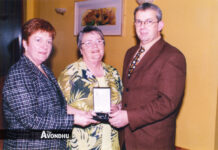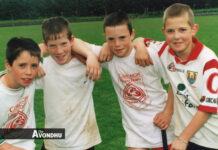
A new survey conducted among NCBI service users has revealed that approximately 40% of respondents, who are blind or vision impaired, have been injured because of unexpected obstacles or hazards on our footpaths. The survey results come as NCBI, Ireland’s national sight loss agency, launched its annual Clear Our Paths campaign on Monday.
Of the 104 respondents to the survey, 40 people answered ‘yes’ when asked the question: ‘Have you ever been injured after walking into or falling over an unexpected obstacle on a footpath?’.
Those who were injured also provided insight into the types of injuries sustained because of obstacles on footpaths: One person revealed that they sustained a ‘broken ankle’ as a result of unexpected street furniture on a footpath. Another person said: ‘There was a car parked on the footpath. I couldn’t pass it on the inside, so I had to go onto the road a little. As I came off the footpath I tripped and went down, spraining my wrist’. A third added: ‘An object hanging out of a truck collided with my face.’ With one more respondent saying: ‘My child was badly injured through overgrown branches scraping her face”.
Respondents were also asked to pick the top three most common unexpected obstacles they encountered on footpaths. The survey revealed, with 78 responses, that cars parked on footpaths were the most common obstacles encountered, followed by dog fouling, with 57 responses, and wheelie bins, with 54 responses.
When asked whether experiences with unexpected obstacles on footpaths affected respondents’ confidence to walk on footpaths independently, 69 out of 104 people answered that it did.
‘DISTURBING’ FINDINGS
Aaron Mullaniff, Chief Services Officer with NCBI said: “The findings of this snap survey are extremely disturbing and highlight the very reasons that we all need to clear our paths. It’s unacceptable that children and adults who are blind or vision impaired can be injured in any way because of the dangers of unexpected obstacles on our public walkways. The physical impact of a fall or injury in these situations is bad enough, but that is compounded by the finding that nearly 70% of all respondents in this survey are less confident to get out and about independently because they may encounter dangers going about their business.
“We need members of the public to get on board with this campaign, understand why it’s important, and listen to the experiences of people who are blind or vison impaired to ensure that people with all abilities can use our public pathways safely.”
As part of this campaign, NCBI has created a webpage aimed at supporting members of the public (www.ncbi.ie/policy-advocacy/latest-campaigns/clear-our-paths/) to have conversations with family members and friends about the importance of their own behaviour.
We can all be active bystanders through our own actions and words and NCBI is asking people to start a positive conversation to encourage others to make sure our footpaths are clear and safe for everyone in our community.
NCBI’s #ClearOurPaths campaign will run until August 25th, highlighting the different obstacles each day.









